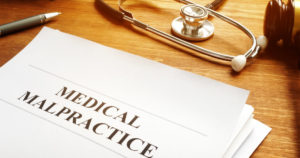Hospitals Can Make You Sick – Safeguarding Against Hospital-Acquired Infections
July 1, 2013We’ve all heard stories about a friend or family member who picked up an infection when they were in the hospital. Healthcare-associated infections are very common these days and they can often cause more problems than the one that brought a person to a medical center in the first place.
Healthcare-associated infections (also known as HAIs) can happen anywhere a person is receiving healthcare. This includes hospitals, rehabilitation centers, nursing homes, ambulatory surgical centers and dialysis centers, to name just a few. According to the US Department of Health and Human Services, HAIs are a significant cause of prolonged illness and even death. At any given time, about 1 in every 20 patients in a hospital has an infection related to his or her hospital care.
HAIs include conditions such as pneumonia, bloodstream infections, surgical wound infections and urinary tract infections. They are associated with a number of risk factors, including surgical procedures, improper use of antibiotics, contamination of a medical facility and use of catheters. HAIs occur for a variety of reasons. For one, sick people have weakened immune systems and it’s easier for an infection to take over. Also, infections can be spread when healthcare workers do not follow safe practices such as washing their hands and changing gloves frequently.
The Centers for Disease Control estimates that close to two million Americans get healthcare-associated infections every year. The CDC also estimates that at least one-third of all HAIs can be avoided with simple precautions. Here are a few recommendations to make sure you or your loved ones don’t fall prey to a healthcare-associated infection:
- Wash your hands! Make sure you wash up or use sanitizing gel frequently.
- Don’t visit if you’re sick! Ask friends and family members to stay home if they are ill. Even a sniffle should keep a visitor away from the hospital.
- Keep an eye on surgical incisions and other wounds. If you see something that doesn’t look right, talk to a nurse or doctor.
- Same rule for catheters! If a tube isn’t covered or becomes dislodged, call for a nurse!
- Don’t be shy! Ask doctors, nurses and technicians to wash up.
Healthcare-associated infections can cause extended illness or even death, but most can be prevented with attention, discipline and care. If you or a loved one has questions about a healthcare-associated infection, call us at Galfand Berger. Our Philadelphia medical malpractice lawyers have handled numerous cases of hospital negligence including cases involving healthcare-associated infections, misdiagnosis, and surgical errors. Call us today at 1-800-222-8792 or contact us online.
 Google Screened
Google Screened

 By
By